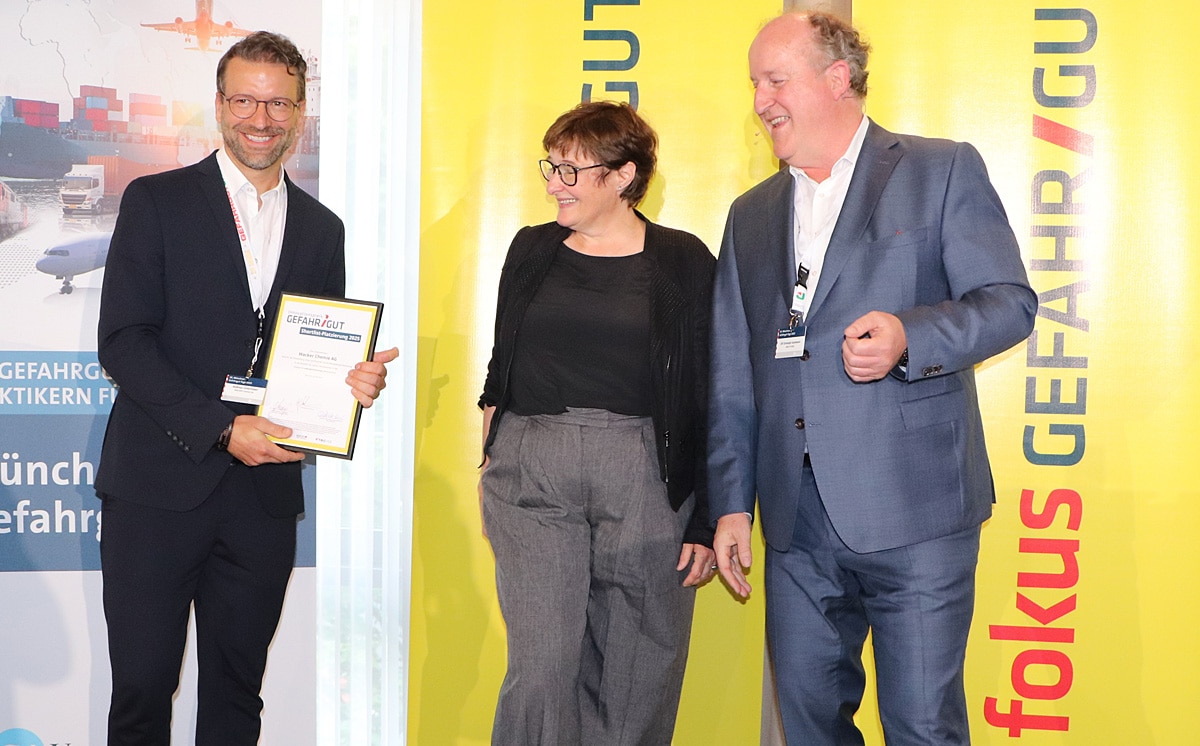
Now 10% off all Ergolash lashing straps save now! Voucher code: ergo10 | Valid until 31.05.2025
Recourse claims are almost always a tiresome topic in a company,
especially when claims cannot be averted.
What are the causes and what can be done about them?

Recourse claims They don’t just happen, they are caused.
This means that if I know the causes, I can do something about them. That is the core of the considerations.
Every entrepreneur should therefore consider what could trigger recourse claims in their area of responsibility.
The experience I would like to share comes from the large area of load securing. However, they can be applied to many other situations.
Let’s imagine the following situation:
Alpha is a manufacturer of machines and systems for energy projects.
One customer, Bravo, has a major project in development and has ordered parts from them(Alpha). He has agreed a time window for delivery with the sales department because the follow-up work should follow on seamlessly.
The purchasing department asks several forwarding agents what the transport from A to B should cost and decides on the cheapest provider, the company Charlie. Because the system is too big and too bulky for the forklift, a crane was ordered from Delta to lift it onto the truck. A time window of two hours was agreed with the crane company.
The day comes when the parts are to be collected.
The truck arrives late. The driver does not speak German and the exact cause of the delay cannot be clarified. Everyone tries to load the cargo as quickly as possible so that the truck can leave the yard.
After a few hours, the police call Alpha and ask for the responsible shipper on the phone.
The forklift driver Klaus reports in. The police inform him that the truck has been checked on the A9 towards Nuremberg and that he is not allowed to continue his journey.
The load is not adequately secured and the truck shows considerable damage that impairs road safety. The load must be reloaded for onward transportation and the driver will also be charged with a violation of §22 StVO.
In addition to the expected fine, further costs will now be incurred.
Another suitable truck with the appropriate equipment must be ordered to the highway parking lot on the A9 to which the load can be transferred.
The Alpha company commissions the Echo company to do this, but it is more expensive than the Charlie company. The crane contractor, Delta, is commissioned to send a crane with sufficient lifting capacity to the parking lot. In addition, a team from Alpha, consisting of 4 men plus the logistics manager, is deployed to the highway parking lot. A few hours later, the project manager from Bravo contacts the sales department of Fa. Alpha and asks where the parts are.
Project progress is delayed, which could lead to contractual penalties.
So much for the situation. The task now is to clarify what went wrong and what should have been done better/differently.
1. not only the costs must be clarified for a transportation order, but also and above all:
2. the loading must be integrated into an appropriate organization. A responsible person must be appointed for this purpose. The person responsible to the legislator is the entrepreneur/managing director. If there is a logistics manager (or similar), the responsibility should be transferred to him by order. In any case, the forklift driver Klaus cannot be the responsible person representing the managing director. There must also be loading instructions indicating the method and type of load securing. It must be designed in such a way that the forces to be expected, as specified in VDI-2700/EN-12195-1, are compensated. A calculation to verify the considerations would also be useful. There should also be a record of this in case the transport insurance company has any questions. It may also be useful to make a photo documentation.
3. when the truck arrives, an incoming inspection must be carried out to see whether the vehicle meets the requirements. A checklist containing all test points is useful for this purpose. If there are any relevant negative points, the loading must be refused and the carrier/forwarder must procure a replacement vehicle at his own expense.
4. an outgoing inspection must ensure that the transport does not leave the factory premises until it complies with the regulations in every detail.
5. where recourse claims could arise:
More than 25 years of experience in this environment have shown that the biggest problems for most companies, regardless of industry, are to be found in the area of “organization”.
One of the legal bases is §130 of the Administrative Offenses Act (OWiG) “Violation of the duty of supervision in companies and businesses”.
Court rulings, which are naturally not always published, contain references to possible solutions. A search term in the Internet browser is “organizational fault”.
A lot of information can be found here that can be reduced to a common denominator.

The duty of supervision is fulfilled by
All steps, including surveillance, must be documented to make life easy for the person concerned and their defense counsel in the event of a case.
(Source: Decision of the OLG Jena of November 02, 2005 – 1 Ss 242/05 Source: NStZ 2006, 533 noted by Frank, UmwStr-012 – 01/07)
The BGH has also made interesting statements on this topic in the judgment “1. BGH 25.03.04 – I ZR 205/01 – transpR 04,309” . When reading judgments, it is always important to filter the essential statements and apply them to your own situation, regardless of the specific occasion.
I would like to recommend these thoughts to every person in a position of responsibility, regardless of organizational level.
Yours, Sigurd Ehringer
<< Previous post
Episode 23: Positive locking on trucks

Sigurd Ehringer
✔ VDI-zertifizierter Ausbilder für Ladungssicherung ✔ Fachbuch-Autor ✔ 8 Jahre Projektmanager ✔ 12 Jahre bei der Bundeswehr (Kompaniechef) ✔ 20 Jahre Vertriebserfahrung ✔ seit 1996 Berater/Ausbilder in der Logistik ✔ 44 Jahre Ausbilder/Trainer in verschiedenen Bereichen —> In einer Reihe von Fachbeiträgen aus der Praxis, zu Themen rund um den Container und LKW, erhalten Sie Profiwissen aus erster Hand. Wie sichert man Ladung korrekt und was sind die Grundlagen der Ladungssicherung? Erarbeitet und vorgestellt werden sie von Sigurd Ehringer, Inhaber von SE-LogCon.
Rothschenk assortment
Our customer center has only one goal: to turn your problems into solutions. Whether standard stowage cushions, bestsellers or load securing personally tailored to your needs -. we accompany you consistently from A as in field service to Z as in certification. That is our promise to you, as a leader in our industry.
We attach great importance to professional cargo securing. That is why we have our own production, which ensures reliable operation through modern manufacturing technologies and strict quality control. Thus, we offer our customers a comprehensive and high-quality range of services in the field of transport logistics.
DIN ISO 9001:2015, EMAS and Ecovadis are not foreign words to you? Then it's time to work with the best.
You don't take any risks with us - we have been awarded the Platinum Medal on the EcoVadis sustainability rating platform.
As a load securement company, we are proud to have several certifications that validate our sustainability efforts and our commitment to environmental protection and social responsibility. For you as a purchaser, this means that we demand and promote the implementation of high environmental and social standards both within the company and along the supply chain.
G&H GmbH Rothschenk
Industriestrasse 5 & 7-10
97239 Aub
Phone: +49 9335 97 15 – 79
Fax: +49 9335 97 15 – 15
E-mail: info@rothschenk.de
Collection/delivery
Mon – Fri: 8:00 – 15:00
Office hours
Mon – Thu: 8:00 – 17:00
Fri: 8:00 – 13:00
G&H GmbH Rothschenk
Industriestrasse 5 & 7-10
97239 Aub
Phone: +49 9335 97 15 – 0
Fax: +49 9335 97 15 – 15
E-mail: info@rothschenk.de
Collection/delivery
Mon – Fri: 8:00 – 15:00
Office hours
Mon – Thu: 8:00 – 17:00
Fri: 8:00 – 13:00
You are currently viewing a placeholder content from Google Maps. To access the actual content, click the button below. Please note that doing so will share data with third-party providers.
More Information